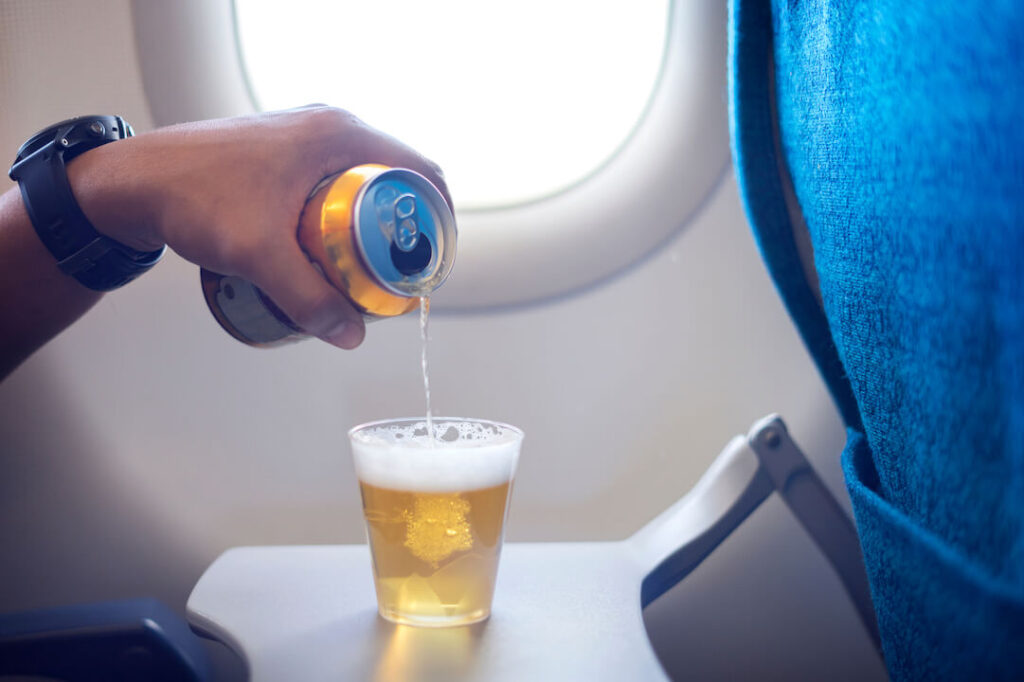The Federal Aviation Administration (FAA) has proposed $161,823 in civil penalties against eight airline passengers for alleged unruly behavior involving alcohol.
In a statement released on November 22, 2021, the FAA said that it had received nearly 300 reports of passenger disturbances due to alcohol and intoxication since January 1, 2021.
In August 2021, FAA administrator Steve Dickson wrote a letter to airport leaders advising them that as the number of passengers traveling has increased, so has the number of unruly and unsafe behavior incidents on planes and in airports.
Dickson said that the FAA’s investigations show that alcohol often contributes to unruly and unsafe behavior, and the administration has received reports that some airport concessionaires have offered alcohol ‘to-go’, which has led passengers to believe that they are permitted to carry alcohol onto flights or they have become inebriated during the boarding process.
Dickson also reminded airport leaders that although the FAA has levied civil fines against unruly passengers, it has no authority to prosecute criminal cases, and has requested airports work to prevent passengers from bringing ‘to-go’ cups of alcohol aboard the aircraft.
Early this year, the organization launched a Zero Tolerance campaign as a measure to reduce violent incidents. While the rate of unruly passenger incidents on commercial flights has dropped since the launch of the campaign, it still remains high.
image from faa.gov
Details and current data on unruly incidents are available here.
The cases that make up the majority of the $161,823 penalties include:
-
$40,823 against a passenger on a Southwest Airlines (LUV) flight on April 15, 2021, from San Jose to San Diego. The FAA alleges the passenger drank their own alcohol during the flight, and continued to do so after a flight attendant told the passenger that was prohibited. The passenger then sexually assaulted the flight attendant. As the flight was descending into San Diego, the passenger entered the lavatory and smoked marijuana. The flight crew asked for law enforcement to meet the plane at the arrival gate. Police arrested the passenger for resisting arrest and public intoxication.
-
$24,000 against a passenger on a Delta Air Lines flight on March 31, 2021 from Fort Myers to Detroit. The FAA alleges the passenger repeatedly took off his face mask after crewmembers told him multiple times to keep it on. He repeatedly swore at other passengers and accused them of stealing his property. After crewmembers asked him multiple times to calm down, he yelled at one of them: “This is America. This is free speech. What don’t you understand?” The passenger was reseated in the last row and a crewmember sat next to him because he had become a security risk. He appeared to be intoxicated and admitted he had been drinking in the airport before the flight. He then jumped out of his seat, stood very close to a crewmember as though he was about to lunge at her, pointed his finger in her face and yelled, “You!” The flight crew decided it was necessary for security reasons to divert to Atlanta, and asked for law enforcement to meet the plane at the gate. The flight arrived 45 minutes late in Detroit because of the diversion.
-
$17,000 against a passenger on a JetBlue Airlines flight on April 16, 2021 from New York City to Guayaquil, Ecuador. The FAA alleges the passenger drank alcohol that was not served to him by the airline, which is against federal regulation. The FAA further alleges the passenger urinated on the lavatory floor, verbally abused the flight crew, and refused to follow crew instructions to wear a facemask. Due to his actions, the flight diverted to Fort Lauderdale, Florida.
The FAA does not have criminal prosecutorial authority but is working with the FBI and Department of Justice to refer cases as appropriate.
After receiving the FAA’s enforcement letter, the passengers have 30 days to respond to the agency. The FAA does not identify individuals against whom it proposes civil penalties.
